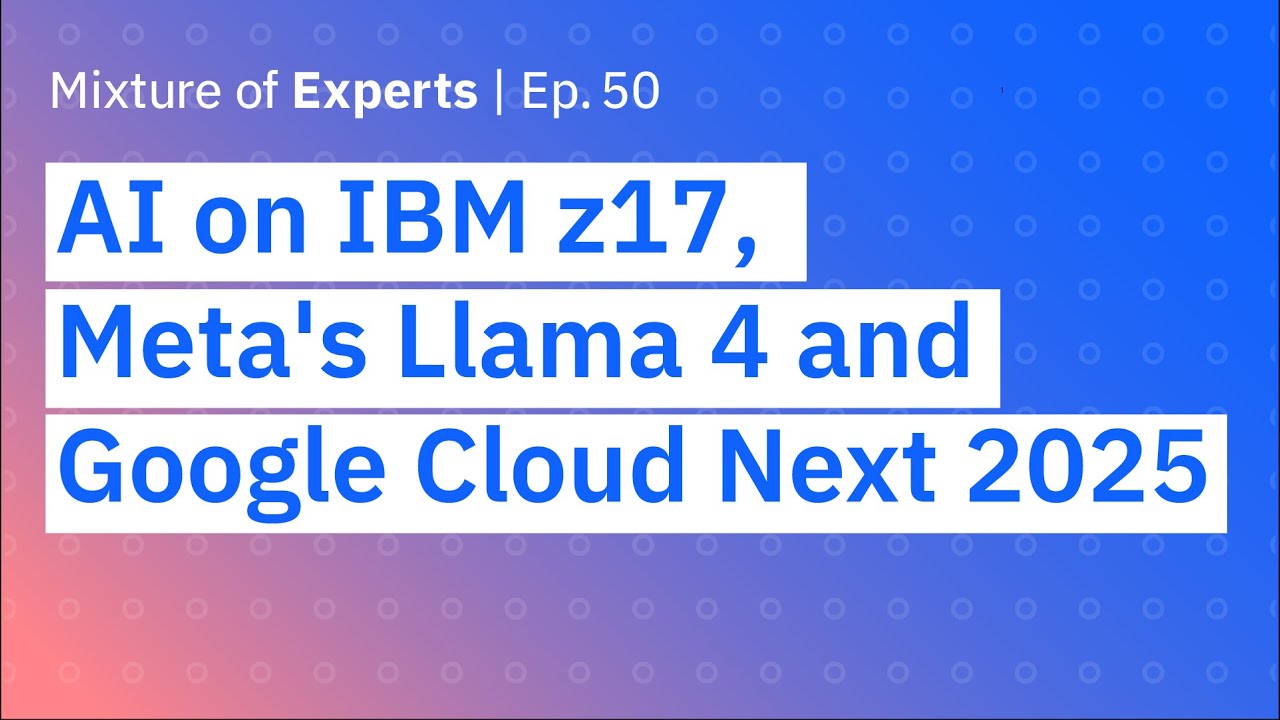In the 50th episode of “Mixture of Experts,” industry experts discuss the advancements in AI integration within enterprise systems, focusing on IBM’s Z17 mainframe and its capabilities for real-time transaction processing and fraud detection. The conversation also covers Meta’s Llama 4 and Google’s innovations at Cloud Next, highlighting the importance of open-source models and the need for diversity in AI research to address public concerns about job displacement.
In the 50th episode of “Mixture of Experts,” the discussion revolves around the significant advancements in artificial intelligence (AI) and its integration into enterprise systems, particularly focusing on IBM’s new Z17 mainframe. The episode features insights from industry experts, including Kate Soul from Granite, Show Varsn from data and AI for the Americas, and Hillary Hunter, IBM Fellow and CTO of IBM Infrastructure. The conversation begins with a quiz about the percentage of unstructured data in enterprises, revealing that a staggering 90% of enterprise data is unstructured, highlighting the challenges organizations face in managing this data.
Hillary Hunter explains the importance of mainframes, particularly the IBM Z series, which is crucial for processing the majority of the world’s financial transactions. The Z17 mainframe boasts eight nines of reliability, meaning it experiences minimal downtime. The integration of AI into these systems is a key focus, as it allows for real-time transaction processing and fraud detection. Hunter discusses the introduction of multi-model AI capabilities, which enable the system to handle billions of transactions efficiently while maintaining high reliability.
The conversation shifts to the recent release of Meta’s Llama 4, which includes various models designed for different applications. The experts discuss the significance of open-source models and the potential for these models to pressure closed labs to release their work. Kate Soul emphasizes the importance of mixture of experts architecture, which allows for efficient training and inference, making it a promising avenue for future AI developments. The panelists express excitement about the potential for these models to enhance enterprise applications, particularly in areas like fraud detection and customer service.
Show Varsn shares insights from Google Cloud Next, highlighting Google’s efforts to serve enterprise clients with advanced AI capabilities. The discussion covers Google’s innovations, including their TPU technology and the introduction of AI for on-premises solutions. The panelists note that Google is leveraging its extensive B2C data to enhance its AI offerings, particularly in media creation and voice experiences. The emphasis on making internal strengths available to enterprises reflects a broader trend in the industry towards integrating AI into various business processes.
Finally, the episode touches on a Pew Research report that reveals a divergence in perceptions about AI between experts and the general public. While experts tend to be more optimistic about AI’s impact on jobs and society, the general public expresses concerns about job displacement. The panelists agree on the importance of increasing diversity in AI research to better reflect societal perspectives and address the concerns of a broader audience. The episode concludes with a call to action for listeners to engage with the ongoing developments in AI and consider the implications for their own organizations.
